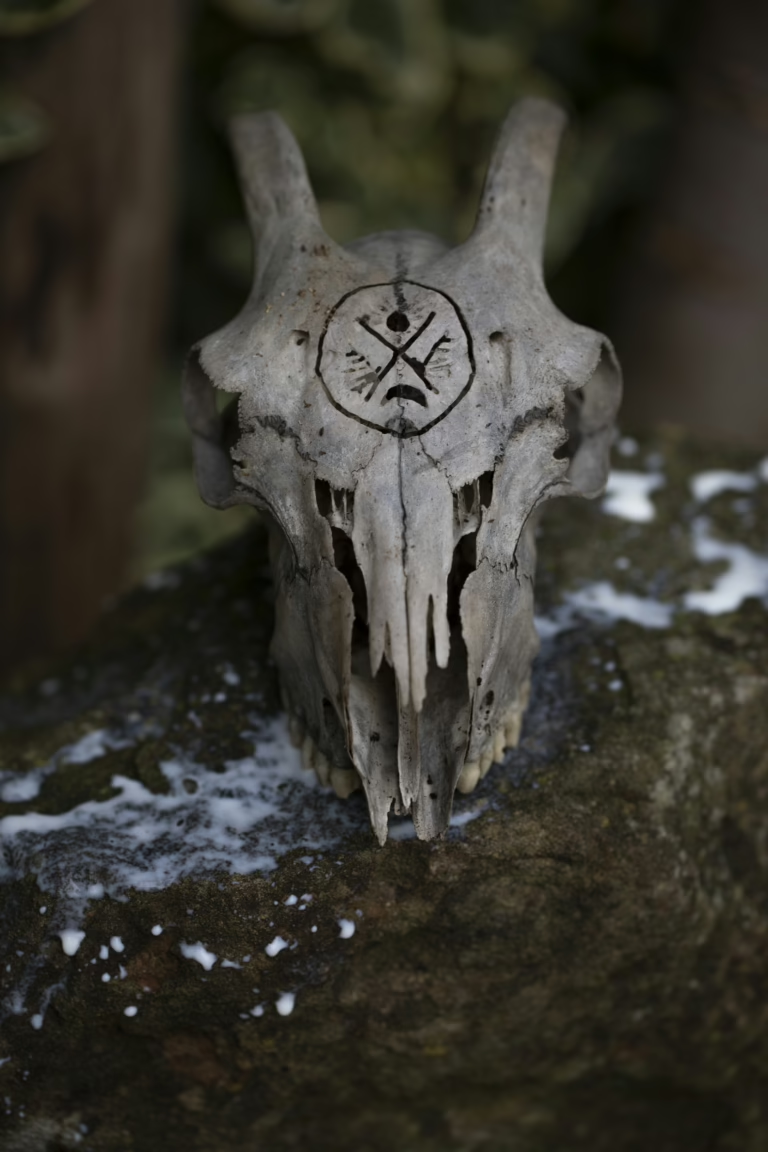
Newsletter Subscribe
Enter your email address below and subscribe to our newsletter

Enter your email address below and subscribe to our newsletter


Exploring Scottish Folk Practices and Traditions
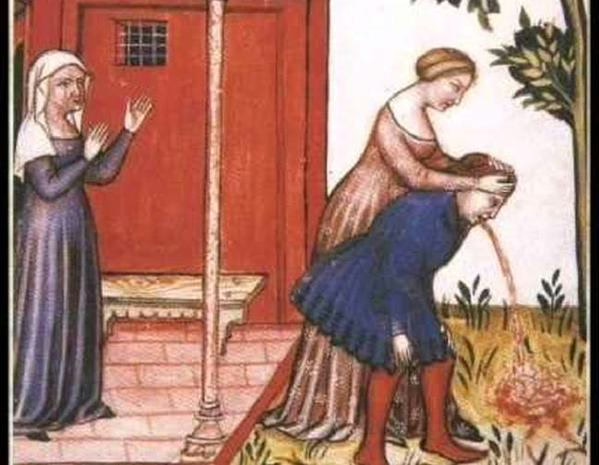
The fear creeping up on you when your still in bed... the taste of a small animal that has crawled into your mouth used it as a toilet and the subsequently died there without any last rites or a word from their relatives. Open one eye, light cracks from between the curtains instantly hurt... headache pounding, stomach churning and perhaps even a little room spin to go with it all? Any feelings of regret are creeping over your imagination, did I really do that? did I really drink that much? did I really tell them THAT story ?… then the hint of whiskey comes back to mind and the queasy feeling gets worse … Yeah is definitely a Hogmanay Hangover … best close your eyes and pretend it never happened …
The fear creeping up on you when your still in bed… the taste of a small animal that has crawled into your mouth used it as a toilet and then later died there without any last rites or a word from their relatives. Open one eye, light cracks from between the curtains instantly hurt… headache pounding, stomach churning and perhaps even a little room spin to go with it all? Any feelings of regret are creeping over your imagination, did I really do that? did I really drink that much? did I really tell them THAT story ?… then the hint of whiskey comes back to mind and the queasy feeling gets worse … Yeah, it’s definitely a Hogmanay Hangover … best close your eyes and pretend it never happened … time for herbal hangover cures and some self care.
As long as people have drunk people have looked for that ever elusive hangover cure. In Scotland, drinking is a national hobby. Everyone has their go-to solutions. For some it’s a hot shower and espresso, others its films, water and paracetamol and then theres always sleeping through the day. Ignore those text messages and hope tomorrow you’ll be able to eat kind of deal. Others, are the brave trail blazers. Well enough for a full Scottish breakfast and a can of Iron Bru, a national drink since 1901! Then maybe on to the pub for a “Hair of the dog” and to dissect last nights crazy antics …
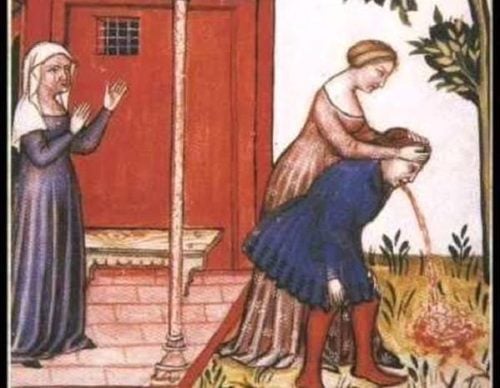
All well and good. What did our Scottish ancestors used to do with no recourse to Iron Bru? According to Pliny the ancient, Celts used Betony (Bettonica Officianlis) to prevent drunkenness and cure a hangover. They also chewed on the roots of bitter-vetch (Lathyrus linifolius) and the bark of the willow tree. Alternatives were chewing on celery seeds or that of the poppy or a tea made of Alder leaves (Alnus Glutinosa) and liquorice (Glycyrrhiza Glabra). This actually all makes some really good sense. We’ll come to that shortly.
They used to make a drink from glow worms, or you could transfer your hangover to a slug or a snail by rubbing it on your head and throwing it away. Alternatively you could stick 13 pins into the cork of the bottle you drank from and curse it with your hangover. An act of transference and a wee bit of folk magic right there. Other alternatives were to drink a beer or wine in which a frog had been drowned or ten little fish had swam in … hmm I knew there was a reason why i didn’t write this yesterday… Feeling Queasy
So back to the more friendly suggestions. We know these days that to help shift a hangover we need to do a number of things. First we help support the liver shift the toxins out, support the kidneys and digestion to get things moving through. It’s well-known bitters do just this, if you don’t have any bitters you can get them from most herbalist store or make them yourself, they are really simple to make. Alternatively, pop outside a grab a few dandelion leaves> Eat them raw or add them to your bacon roll. (Napier in Edinburgh even has a specially formulated one for hangovers. Not that I’m trying to support the Scottish Stereotype here at all). Our ancestors knew chewing on Bitter-vetch would have done just this.
So what of betony tea and willow bark. Betony was held in very high esteem but our ancestors (more on that another day). What these herbs do is help support the hangover headache and dehydration of our bodies the next step in the support process. Apelius wrote:
“It is good whether for the man’s soul or for his body; it shields him against visions and dreams, and the wort is very wholesome, and thus thou shalt gather it, in the month of August without the use of iron; and when thou hast gathered it, shake the mold till nought of it cleave thereon, and then dry it in the shade very thoroughly, and with its root altogether reduce it to dust: then use it and take of it when thou needst.”
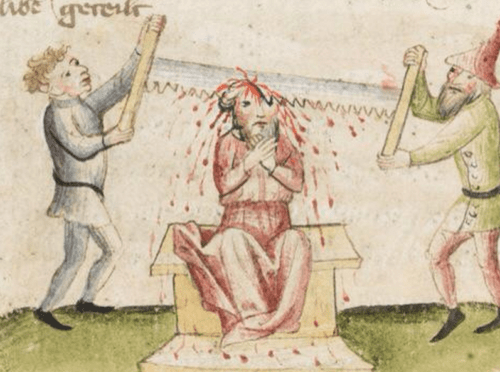
It was considered a great cure for any maladies of the head, from headaches to feeling a bit strung out and against the “fear” (as me and my friends refer to the hangover dread). Willow bark, as we may know, was one of the originators of the now commercially available aspirin. So these two in combination would be perfect for the headache as would the seed of poppies which would have a relaxing calming and analgesic effect also.
The alder and liquorice combination would have had a similar bitter effect from the alder leaves. The liquorice would have acted as a demulcent and also a mild laxative if the root chewed enough to release the bitter part. Again its about getting things moving down there to shift the toxins out your body.
It’s pretty clear that our Scottish Ancestors knew what they were doing when it come to herbal hangover cures right enough! So moving this to modern-day you would need your bitters first thing in the morning and before and after you eat anything. You might look for a bitters recipe with some carminative herbs in the mix as well such as ginger to help fire up your digestion and get things moving in the liver.
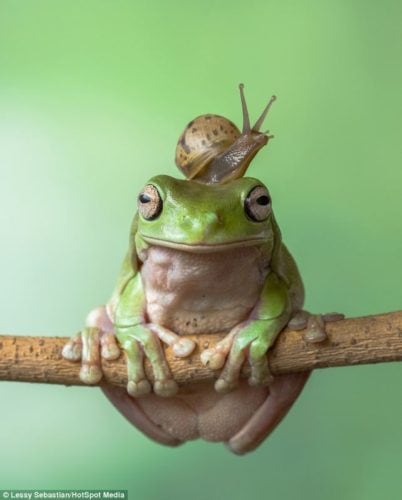
You could then enjoy tea made up of hangover herb cures such as betony and poppy-seed. I wouldn’t recommend willow bark as it’s a bit tricky to chew on or a bit faffy to boil it as a decoction but you could use meadow-sweet as a substitute here as it has similar analgesic action and is easy to make a tea out of. I have include a wee recipe for a hangover tea below that works for this.
Finally, the third step is to get your blood sugar back up. I would recommend lots of water and fresh vegetables and something with vitamin C in it like orange juice, try to stay away from caffeine as it will kick-start your hangover and dehydrate you more but might give you the energy you need to get out of bed!
I hope your Hogmanay and new year went well and you’re recovering well!
Sláinte Mhath!
Place it all in a pot and cover with hot water. Leave for ten to fifteen mins (if you leave it too long the chamomile will get bitter and might make you a wee bit queasy. Add honey and lemon to taste. The wood betony, poppy, meadow-sweet and chamomile should give it a floral flavour which will be balanced by the rosemary and mint.